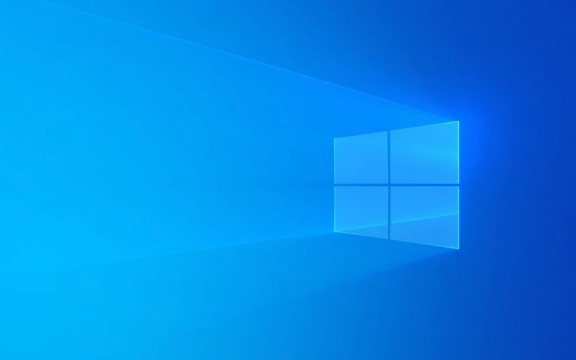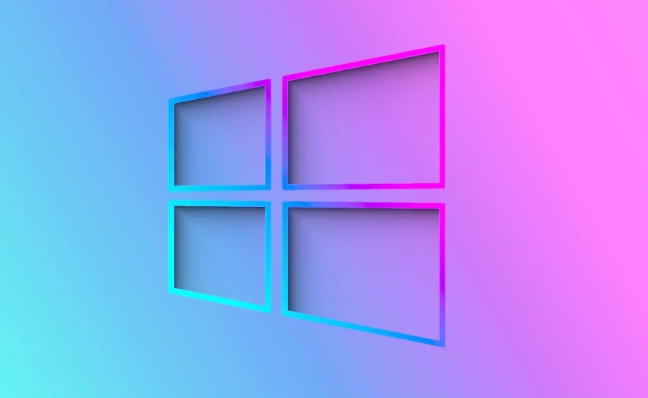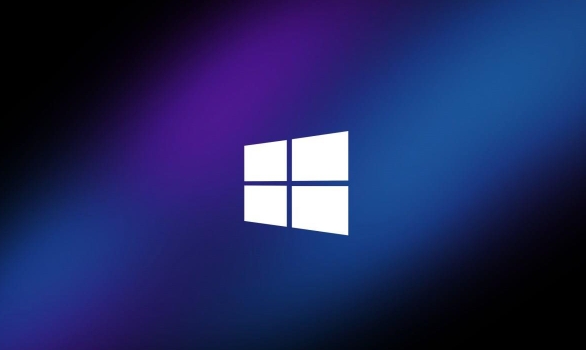To enable verbose startup messages in Windows, use System Configuration (msconfig) by opening it via Win R, navigating to the Boot tab, and checking "Verbose status messages," then restart. 2. On Windows Pro/Enterprise, use Group Policy Editor (gpedit.msc), go to Computer Configuration → Administrative Templates → System → Startup, enable "Display detailed status information on the boot screen," and reboot. 3. For all Windows versions, use Registry Editor (regedit), navigate to HKEY_LOCAL_MACHINE\SOFTWARE\Microsoft\Windows\CurrentVersion\Policies\System, create or set the DWORD verbosestatus to 1, then restart; always back up the registry first. After enabling, you’ll see text messages detailing startup phases and system status, aiding in troubleshooting slow boots or hangs, though Fast Startup and UEFI optimizations may limit visibility, and the effect may be subtle on modern systems.

If you've ever booted up Windows and seen a blank screen or a spinning circle with no feedback, you might want more detailed information about what's happening during startup. By default, Windows hides most of the system messages to present a clean boot experience. But if you're troubleshooting or just curious, enabling verbose startup messages can help.

Here’s how to turn them on:
1. Use System Configuration (msconfig)
This is the easiest and most common method.

- Press Win R to open the Run dialog.
- Type
msconfigand press Enter. - Go to the Boot tab.
- Under the Boot options section, check the box for Verbose status messages (or Display detailed information about the state of the system during startup and shutdown in newer versions).
- Click Apply, then OK.
- Restart your computer.
?? Note: In some versions of Windows 10 and Windows 11, the exact wording may vary slightly, and this option might not be visible if you're using UEFI firmware and Fast Startup. It's more commonly effective on older systems or when legacy boot options are in use.
2. Enable via Group Policy (Windows Pro/Enterprise only)
If you're on Windows Pro, Education, or Enterprise, you can use the Local Group Policy Editor.

- Press Win R, type
gpedit.msc, and press Enter. - Navigate to:
Computer Configuration → Administrative Templates → System → Startup - Look for the policy:
Display detailed status information on the boot screen - Double-click it and set it to Enabled.
- Click Apply, then OK.
- Reboot your PC.
This method gives you more control and ensures the setting persists through updates.
3. Use Registry Editor (All Windows versions)
If you don’t have access to Group Policy (e.g., Windows Home), you can edit the registry directly.
- Press Win R, type
regedit, and press Enter. - Navigate to:
HKEY_LOCAL_MACHINE\SOFTWARE\Microsoft\Windows\CurrentVersion\Policies\System - Look for a DWORD value called verbosestatus.
- If it doesn’t exist, right-click in the right pane → New → DWORD (32-bit) Value → Name it
verbosestatus.
- If it doesn’t exist, right-click in the right pane → New → DWORD (32-bit) Value → Name it
- Set its value to 1.
- Close Registry Editor and restart your computer.
? Tip: Always back up the registry before making changes.
What You’ll See After Enabling
Once enabled, during boot you should see:
- Text messages describing each startup phase
- Status updates like “Loading Windows,” “Starting services,” etc.
- More transparency if the system hangs or fails
It won’t show every single process, but it provides significantly more feedback than the blank screen or progress spinner.
Limitations to Know
- Fast Startup can interfere with verbose messages. Consider disabling it in Power Options for full visibility.
- On UEFI systems with optimized boot, some messages are suppressed at the firmware level.
- The display may still appear minimal on many modern PCs due to hardware and driver optimizations.
Basically, turning on verbose startup isn’t always dramatic, but it’s useful when diagnosing slow boots or system hangs. The registry method works on all versions, while Group Policy is cleaner if available.
The above is the detailed content of How to enable verbose startup messages in Windows. For more information, please follow other related articles on the PHP Chinese website!

Hot AI Tools

Undress AI Tool
Undress images for free

Undresser.AI Undress
AI-powered app for creating realistic nude photos

AI Clothes Remover
Online AI tool for removing clothes from photos.

Clothoff.io
AI clothes remover

Video Face Swap
Swap faces in any video effortlessly with our completely free AI face swap tool!

Hot Article

Hot Tools

Notepad++7.3.1
Easy-to-use and free code editor

SublimeText3 Chinese version
Chinese version, very easy to use

Zend Studio 13.0.1
Powerful PHP integrated development environment

Dreamweaver CS6
Visual web development tools

SublimeText3 Mac version
God-level code editing software (SublimeText3)
 How to Change Font Color on Desktop Icons (Windows 11)
Jul 07, 2025 pm 12:07 PM
How to Change Font Color on Desktop Icons (Windows 11)
Jul 07, 2025 pm 12:07 PM
If you're having trouble reading your desktop icons' text or simply want to personalize your desktop look, you may be looking for a way to change the font color on desktop icons in Windows 11. Unfortunately, Windows 11 doesn't offer an easy built-in
 Fixed Windows 11 Google Chrome not opening
Jul 08, 2025 pm 02:36 PM
Fixed Windows 11 Google Chrome not opening
Jul 08, 2025 pm 02:36 PM
Fixed Windows 11 Google Chrome not opening Google Chrome is the most popular browser right now, but even it sometimes requires help to open on Windows. Then follow the on-screen instructions to complete the process. After completing the above steps, launch Google Chrome again to see if it works properly now. 5. Delete Chrome User Profile If you are still having problems, it may be time to delete Chrome User Profile. This will delete all your personal information, so be sure to back up all relevant data. Typically, you delete the Chrome user profile through the browser itself. But given that you can't open it, here's another way: Turn on Windo
 How to fix second monitor not detected in Windows?
Jul 12, 2025 am 02:27 AM
How to fix second monitor not detected in Windows?
Jul 12, 2025 am 02:27 AM
When Windows cannot detect a second monitor, first check whether the physical connection is normal, including power supply, cable plug-in and interface compatibility, and try to replace the cable or adapter; secondly, update or reinstall the graphics card driver through the Device Manager, and roll back the driver version if necessary; then manually click "Detection" in the display settings to identify the monitor to confirm whether it is correctly identified by the system; finally check whether the monitor input source is switched to the corresponding interface, and confirm whether the graphics card output port connected to the cable is correct. Following the above steps to check in turn, most dual-screen recognition problems can usually be solved.
 Fixed the failure to upload files in Windows Google Chrome
Jul 08, 2025 pm 02:33 PM
Fixed the failure to upload files in Windows Google Chrome
Jul 08, 2025 pm 02:33 PM
Have problems uploading files in Google Chrome? This may be annoying, right? Whether you are attaching documents to emails, sharing images on social media, or submitting important files for work or school, a smooth file upload process is crucial. So, it can be frustrating if your file uploads continue to fail in Chrome on Windows PC. If you're not ready to give up your favorite browser, here are some tips for fixes that can't upload files on Windows Google Chrome 1. Start with Universal Repair Before we learn about any advanced troubleshooting tips, it's best to try some of the basic solutions mentioned below. Troubleshooting Internet connection issues: Internet connection
 Want to Build an Everyday Work Desktop? Get a Mini PC Instead
Jul 08, 2025 am 06:03 AM
Want to Build an Everyday Work Desktop? Get a Mini PC Instead
Jul 08, 2025 am 06:03 AM
Mini PCs have undergone
 How to clear the print queue in Windows?
Jul 11, 2025 am 02:19 AM
How to clear the print queue in Windows?
Jul 11, 2025 am 02:19 AM
When encountering the problem of printing task stuck, clearing the print queue and restarting the PrintSpooler service is an effective solution. First, open the "Device and Printer" interface to find the corresponding printer, right-click the task and select "Cancel" to clear a single task, or click "Cancel all documents" to clear the queue at one time; if the queue is inaccessible, press Win R to enter services.msc to open the service list, find "PrintSpooler" and stop it before starting the service. If necessary, you can manually delete the residual files under the C:\Windows\System32\spool\PRINTERS path to completely solve the problem.
 How to run Command Prompt as an administrator in Windows 10?
Jul 05, 2025 am 02:31 AM
How to run Command Prompt as an administrator in Windows 10?
Jul 05, 2025 am 02:31 AM
To run command prompts as administrator, the most direct way is to search through the Start menu and right-click "Run as administrator"; secondly, use the Win X shortcut menu to select "Command Prompt (Administrator)" or "Windows Terminal (Administrator)"; you can also open the run window through Win R and enter cmd and press Ctrl Shift Enter to force running as administrator; in addition, you can set shortcut properties to achieve automatic running as administrator. All the above methods require administrator permission and confirmation through UAC. Pay attention to security risks during operation.







